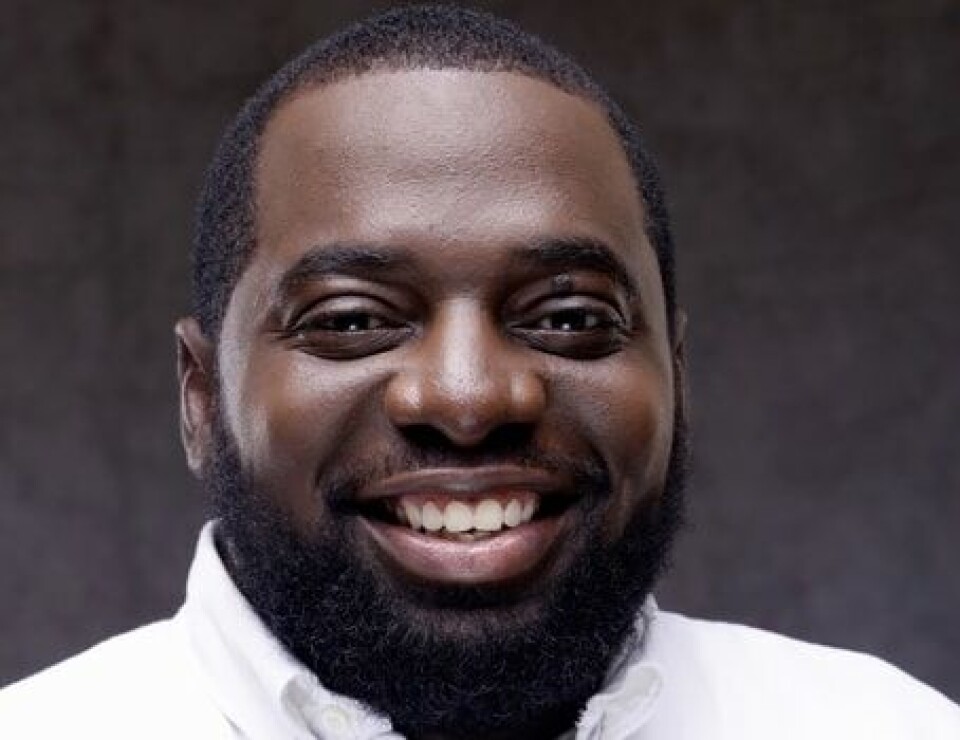Copyright : Re-publication of this article is authorised only in the following circumstances; the writer and Africa Legal are both recognised as the author and the website address www.africa-legal.com and original article link are back linked. Re-publication without both must be preauthorised by contacting editor@africa-legal.com
Riding with Uber

Ade Haastrup is the West Africa Regional Counsel for Uber, the multinational ride-hailing company. He spoke to Ifeoluwa Ogunbufunmi on managing the company’s legal and regulatory affairs in Nigeria, Ghana, and Cote d’Ivoire.
“I embarked on an in-house career somewhat serendipitously,” says Haastrup who joined Uber in 2017, on what was meant to be a three-month secondment.
“I stayed because I enjoy being so close to a business which is having such a great impact on the world.”
It is not very often that an opportunity comes along to join a genuinely transformational company at the cutting edge of innovation and technology, he admits. “Uber ignites opportunities and I find working with the company, fast-paced and exciting!”
His role as head of legal and regulatory affairs for Nigeria, Ghana and, recently, Cote d’Ivoire was expanded earlier this year. He now also supports payment and vehicle access initiatives for the company across sub-Saharan Africa.
Haastrup admits regulations in West Africa are only just beginning to catch up with innovation. He spends some of his time supporting Uber’s teams as they work with cities across West Africa as part of the broader mobility movement, while pushing for regulations that recognise Uber’s business model and support the provision of safe, reliable and efficient transportation.
One of the highlights of his job is being involved with a company that is creating economic opportunities and changing the future of work, he says.
“Interacting with driver-partners, whether at a roundtable or while on a ride, and understanding the positive impact that Uber has had on them, their families, and their communities is energising and fulfilling.”
In his in-house role, Haastrup says, investing in relationships with colleagues has been critical. “It means I am brought into conversations early enough to add value and mitigate risks that might appear down the line.
“Listening, learning and asking a lot of questions is so important as it enables me to understand what my ‘internal client’ is trying to achieve, their worries and how best what they want to do will serve the company”.
As an in-house counsel, he says, he has learned that legal skills have to be “cross-functional”.
“Legal expertise and advice has to be available to all areas of the business. I focus on building capacity within internal teams so that, incrementally, they understand more about what we, as a legal team, look out for. In this way, we become more efficient as a business. This ensures a proactive approach to managing relationships with other internal teams and understanding the business’ strategy, commercial objectives and legal priorities”.
Before he joined Uber Haastrup spent three years as an Associate at Detail Commercial Solicitors in Lagos. His core areas of practice included Corporate/Commercial, Real Estate, Mergers & Acquisitions and Finance. He also had a one-year stint at Pinheiro LP, a commercial litigation firm in Lagos.
Taking up an in-house role was a decision that was influenced by his mentors —Robert Kayihura, Uber’s erstwhile Legal Director for the Middle East and Africa, and Kenneth Njuguna, Uber’s sub-Saharan Africa Counsel, who both showed by example what a career in-house could be.
Haastrup achieved his undergraduate and master’s law degrees from the University of Buckingham (near Silverstone in the United Kingdom) after which he moved back to Nigeria.
In his downtime, he enjoys cooking (“Eating mostly!”), reading and travelling for work. “As is the case with anyone with a demanding career, I enjoy the occasional quiet night-in with a glass of red wine”.
For young lawyers, he says, the key thing to remember is that an in-house counsel is not hired solely for technical legal skills.
“You need to understand the commercial objectives of the business and you do this by nurturing the relationship with your company. You must consistently strive to apply the law and communicate in a way your client will understand”.
